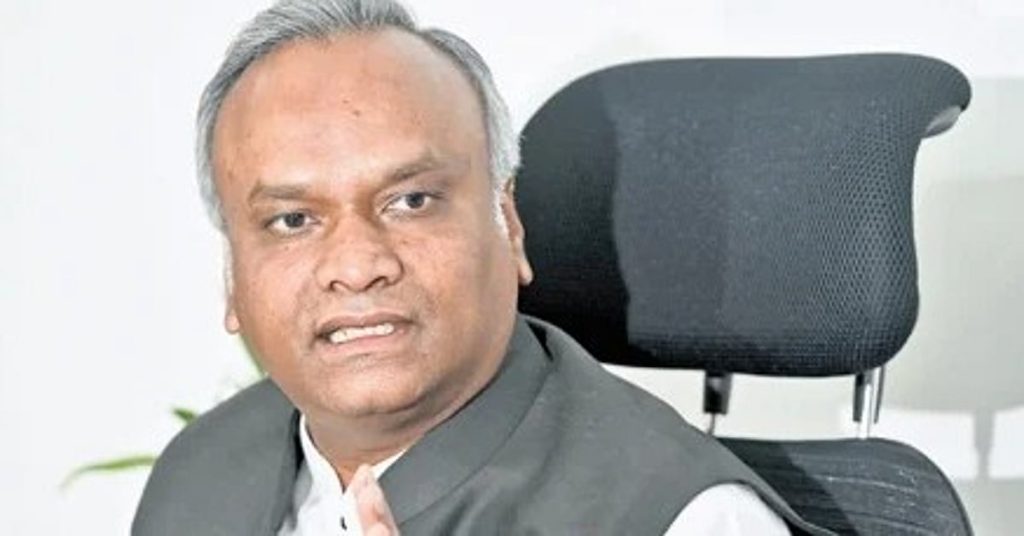Listen to the article
Karnataka’s government plans to introduce legislation targeting the spread of misinformation in the upcoming Assembly session, according to IT/BT Minister Priyank Kharge. Speaking at a policy dialogue on Friday, Kharge emphasized that the proposed Karnataka Misinformation and Fake News (Prohibition) Bill, 2025 would focus specifically on “harmful falsehoods presented as fact.”
“We are not criminalising humour, dissent, or creativity. The bill excludes satire, parody, opinion, and art,” Kharge clarified during his address at the “Truth, Trust & Technology” event in Bengaluru. The minister revealed that the legislation is being developed in collaboration with the state’s Law and Home Departments.
The initiative comes amid growing global concern about the impact of false information on democratic institutions. Kharge cited the World Economic Forum’s 2024 Global Risks Report, which ranks misinformation and disinformation as the most significant short-term global threat. “Disinformation is not harmless — it is weaponised deception,” he warned.
Karnataka’s approach appears to acknowledge the complex balance between regulating harmful content and protecting free expression. The state government is prioritizing public consultation in the bill’s development process, with Kharge emphasizing the importance of broad engagement. “We have started a very important dialogue today. This should not remain within four walls — it must be debated publicly so that people understand the dangers of misinformation, disinformation, malinformation, and fake news,” he stated.
The minister framed the legislation as part of a broader vision to build a society grounded in “scientific temperament and economic growth,” suggesting that combating misinformation is essential for Karnataka’s development trajectory.
India’s technology hub has particular reason to be concerned about online misinformation. As home to Bengaluru, one of Asia’s leading tech centers, Karnataka hosts operations for numerous global and domestic social media and technology companies that have grappled with content moderation challenges. The state’s position at the intersection of technology innovation and governance gives its policy approaches heightened significance nationally.
Following Kharge’s keynote, a panel discussion titled “Regulating Speech in Karnataka: A Constitutional Tug of War” explored the legal dimensions of the proposed bill. Sudhir Krishnaswamy, Vice-Chancellor of the National Law School of India University (NLSIU), addressed questions of constitutional authority, noting that “the state has legislative competence to enact such a law.” However, he cautioned that “the question is not competence — it is prudence.”
Krishnaswamy also emphasized the need for accountability from digital platforms, suggesting that any effective regulation would require technology companies to share responsibility for content distributed through their services. He noted that Karnataka’s approach could draw from global precedents as jurisdictions worldwide develop frameworks to address misinformation while protecting free expression.
The proposed legislation emerges against a backdrop of increasing international regulatory attention to digital misinformation. Several countries have implemented or proposed similar laws, though their approaches vary significantly in scope and enforcement mechanisms.
Critics of such legislation often raise concerns about potential overreach and the challenges of distinguishing between harmful misinformation and protected speech. The Karnataka government’s explicit exclusion of satire, parody, opinion, and art appears designed to address these worries.
As the bill moves toward introduction in the Assembly, stakeholders including technology companies, civil society organizations, legal experts, and the public will likely scrutinize the specific provisions and enforcement mechanisms. The success of Karnataka’s initiative may ultimately depend on striking an effective balance between curbing harmful misinformation and preserving the democratic values of free expression and open debate.
Fact Checker
Verify the accuracy of this article using The Disinformation Commission analysis and real-time sources.




11 Comments
Regulating misinformation is a complex challenge, but Karnataka’s approach of excluding satire, parody, and opinion seems sensible. Curious to see how they define ‘harmful falsehoods’ and ensure the law doesn’t overstep into legitimate debate.
Agreed, the definitions and implementation will be critical. Striking the right balance is essential to address real harms without infringing on free speech.
Misinformation is a growing global concern, so I’m glad to see Karnataka taking action. The minister’s comments about ‘weaponised deception’ highlight the seriousness of the issue. Curious to learn more about the specific provisions of the proposed bill.
The Karnataka government’s proposed misinformation bill is a timely response to a growing global problem. I’m glad to see they’re aiming to target ‘harmful falsehoods’ specifically, while protecting legitimate forms of expression.
Interesting move by Karnataka to address the growing threat of misinformation. Protecting free expression while regulating harmful falsehoods is a delicate balance. I’ll be curious to see the specifics of the proposed legislation and how it’s implemented.
Tackling the spread of misinformation is a worthy goal, but the details will be crucial. Karnataka’s approach of excluding satire, parody, and opinion sounds reasonable, but I’ll be watching closely to see how they define and enforce the regulations.
Absolutely, the definitions and implementation will be key. Misinformation can be damaging, but overly broad regulations could do more harm than good if not carefully crafted.
Interesting move by the Karnataka government to address the growing threat of misinformation. Striking the right balance between regulating harmful content and protecting free speech will be crucial. I’m curious to see the specific details of the proposed legislation.
Agree, it’s a delicate issue that requires careful consideration. Misinformation can be damaging, but overly broad regulations could infringe on legitimate discourse.
The Karnataka Misinformation and Fake News (Prohibition) Bill sounds like a proactive step to combat the spread of harmful falsehoods. Excluding satire, parody, opinion, and art is a sensible approach to avoid stifling free expression.
Absolutely, addressing the real threat of disinformation while preserving core freedoms is crucial. Will be interesting to see how they implement and enforce the legislation.